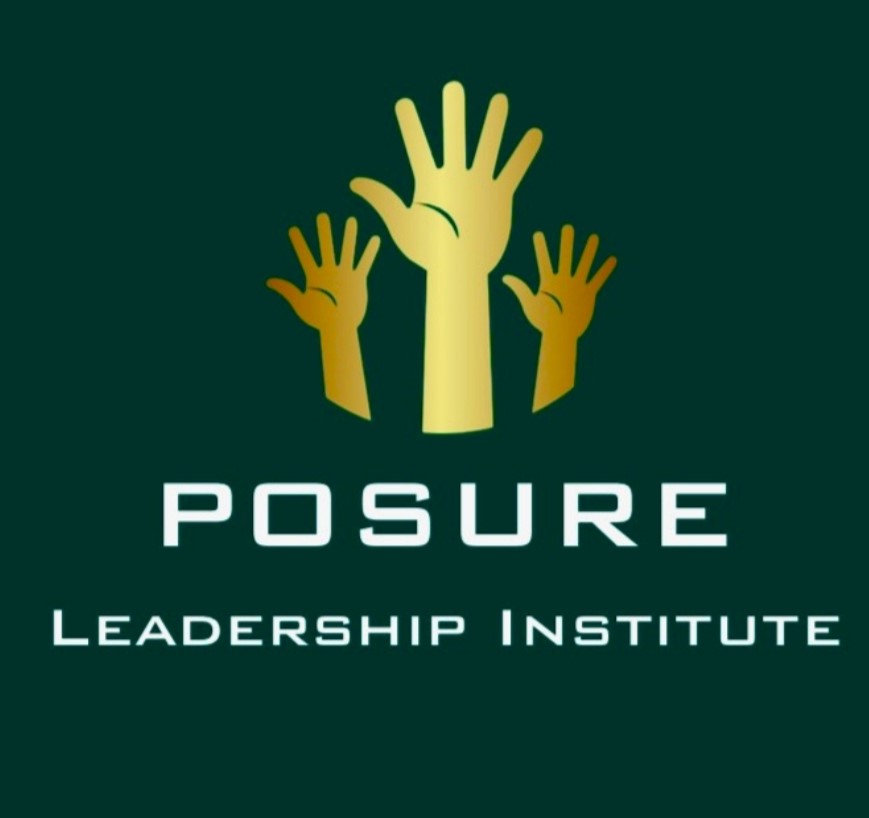LEADERSHIP INTERVIEW by Chidi Ndubueze Department of Counseling Ministries, Regent University MHPS 740: Introduction and Leadership Ingo Tophoven, Ph.D. October 4, 2021 LEADERS
Abstract
This paper is a leadership interview with a Christian Scholar who has held multiple leadership positions. Her professional journey is geared towards her calling – leadership in the church and the community, reflecting the life of Christ. This paper will look at a brief professional history of the interviewee, including her integration of faith and theology into her professional work. It will also look at the anticipated changes in her profession, including her goals and aspirations; the theoretical models that have been of significance in her professional journey; the obstacles she has experienced in her professional pursuit; and her advice for professionals in development. Keywords: Leader, leadership, God, ministry, serving, servant.
The interviewee’s name is Ifeoma Okoro, a young bible scholar and leader from Nigeria who is currently the Registrar for Southwestern Christian University, Oklahoma. She is the Founder of Widows Advance Care and Welfare Center, a non-profit organization that has catered to the needs of widows in her hometown since 2002. Ms. Okoro came to the United States in 2010 to study Theology at Free Gospel Bible Export in Pennsylvania. Upon graduation from bible school, she left Pennsylvania to pursue a Bachelor’s degree in Biblical Studies and Leadership from Southwestern Christian University, Oklahoma. She was ordained a minister by the International Pentecostal Holiness Church (IPHC). Ms. Okoro also obtained her Master’s degree in Theological Studies and Leadership through the same school. Upon graduating from her Master’s program, Ms. Okoro was offered a job as a Youth Specialist for the Oklahoma Office of Juvenile Affairs. At this job, she developed the desire to go into education, having observed the teacher-student interaction in the juvenile system, and feeling led to pursue further education in leadership. She went back to school for her doctoral leadership and education program at the Oral Robert University in Tulsa, Oklahoma. While a student at Oral Roberts, she was inducted as a member of the Committee for Accreditations. She also started a job as a Special Education Teacher for Tulsa Public Schools, where she got selected within six months as an Emerging Leader. She is currently the Registrar at Southwestern Christian University Oklahoma. She is also completing her dissertation on Reviewing the Emerging Leader Program. Ms. Okoro posits that some aspiring leaders have a skewed view of leadership, arguing that education alone cannot earn one leadership position. Neither should one be placed in a leadership position because they happen to be available when there is a vacancy. She believes different factors determine a leader, including the call of God, personal and interpersonal skills developed through a continuous transformation through our experiences and interaction with others. She posits various processes a leader goes through to become successful, stressing the word “process.” Pioneers in research studies on leadership support this point of view. (Greenleaf & Spears, 2002; Northouse, 2019). Ms. Okoro does not separate faith and theology from her profession. She sees her professional experiences as a journey that God has continued to take her through, stating, “When God calls you, He prepares you. He doesn’t train you like a baby; He trains you like a soldier.” She sees her professional journey as training and equipping, referring to the various positions she has held over time as “serving.” This servant leadership attribute comes naturally to Ms. Okoro (New International Version Bible Matt 20:26). Russel and Stone (2004) suggest that “we must place service at the core; for even though power will always be associated with leadership, it has only one legitimate use: services.” (p.145). Ms. Okoro recognizes the challenges that come with leadership; still, she sees “outcome” as the motivational factor, referencing Jesus as her example of a leader who placed Himself in a servant position and withstood trials because of the goal before him (Sendjava & Sarros, 2002; Hebrews 12:2 NIV). Other attributes that Ms. Okoro considers significant for a leader include stewardship, integrity, consistency, trust, communication, and honesty (Russel:2004; Greenleaf:2002; Northouse:2019) Talking about her goals, aspirations, and changes she anticipates in her profession, Ms. Okoro states, “I have learned in my walk, with my experience with God, not to define what I wanna do but just leave it there and say, ‘Lord, what next?'” This stance supports her servant’s attitude, whose focus is on completing the assigned task and asking for her next assignment. What about vision? What about foresight? Granted that vision or foresight is a crucial attribute of LEADERSHIP INTERVIEW 5 a leader (Greenleaf:2002). Ms. Okoro believes God, who has called her, knows what the future holds, and therefore looks to God to order her steps, direct her path and bring her to her next task (Ps 37:23; Heb 12:2 NIV). However, she believes in stewardship – faithfully completing a task and completing it well. She states, “I said Lord whatever I find my hands to do, I will put in my best. Once it’s done, the next door will open.” Ms. Okoro implies that “human beings wanna do so much, but God knows exactly what He wants us to do,” an idea that is reinforced by Proverbs 16:9 – “In their hearts, humans plan their course, but the Lord establishes their steps.” (NIV Bible). Ms. Okoro adopts two leadership theories that she has found most helpful in her professional journey – transformational leadership theory and path-goal leadership theory. According to Northouse:2019, transformational leadership emphasizes emotions, values, ethics, and standards (p.163), leadership traits that Ms. Okoro finds indispensable for a leader. Perceiving leadership from an angle of faith, Ms. Okoro states, “Anybody that Jesus calls, He transforms.” This implies that no leader is perfect but grows in their leadership experiences. She believes in authenticity – how a leader derives meaning from their experiences, a transformational leadership attribute (Northouse:2019). Path-goal leadership theory focuses on the needs of the followers, as well as the conditions under which the followers work. A path-goal leader modifies their behaviors to suit the needs of their followers and the situation at hand. They understand that a leader’s behaviors impact an organization positively or negatively, moving it forward or pulling it down (Northouse:2019). Ms. Okoro believes self-evaluation is significant for any leader. She also posits that an effective leader “sees people as an asset, a gift, people-oriented,” and cares about the people they work with instead of “paperwork.”
Addressing the obstacles she has experienced in her professional journey, Ms. Okoro focused on cultural differences, seeing that as a “challenge” rather than an obstacle. She expresses that people do not always treat her with total acceptance and respect due to her gender or ethnic background Ms. Okoro’s method of responding to this challenge is to treat others the way she would want to be treated, bearing the fruits of the spirit – love, joy, peace, forbearance, kindness, goodness, faithfulness, gentleness, and self-control (Gal 5:22-23; Matt 7:12 NIV). This attitude reflects authentic leadership as postulated by Northouse (2019). When tested under challenging situations, authentic leaders do not compromise their values but instead use those situations to strengthen their values (p.200). Ms. Okoro believes that the behaviors of a leader and the way a leader handles difficult situations can trigger positive responses and change in others. Ms. Okoro has a bit of concise advice for potential leaders – “Don’t give people false hope; let your yes be yes; let your no be no.” Honesty, integrity, trust, and credibility elicit effective leadership. (Russell R.F., and Stone A.G., 2002; Matthew 5:37) Ms. Okoro emphasizes these traits, stressing that a leader’s procrastination, inconsistency, and instability can discourage the followers, create mistrust, and negatively impact the followers’ mental health. She also listed effective communication as an essential characteristic a leader should possess. Northouse (2019), in his leader-member exchange theory, states, “effective leader-follower relationships are marked by high-quality communication in which leaders and followers demonstrate a high degree of mutual trust, respect, and obligation towards each other.” (p. 201). Instead of procrastinating, Ms. Okoro advises aspiring leaders to listen to their followers, hear them, and actively provide support when needed. She states, “Don’t say I’ll think about it. Ask what can I do for you?” Emotional healing, according to Northouse, 2019 “includes recognizing others’ problems and being willing to take the time to address them: (p. 235).
REFERENCES
Greenleaf, R. K. (2002). Servant leadership: A journey into the nature of legitimate power and greatness (25th-anniversary ed.) (L. C. Spears, Ed.). Paulist Press. Russel, R. F. & Stone, A. G. (2004). A review of servant leadership attributes: developing a practical model. Leadership & Organizational Development, 23, 145-157. Northouse, P. G. (2019). Leadership theory and practice (8th ed.). Sage Publications, Inc. Sendjava, S. & Sarros, J.C. (2002). Servant leadership: Its origin, development, and application in organizations. Journal of Leadership & Organizational Studies, 9, 57-64. Simons, T. L (1999). Behavioral integrity as a critical ingredient for transformational leadership [Electronic version]. Retrieved from Cornell University, School of Hospitality Administration site: http://scholarship.sha.

